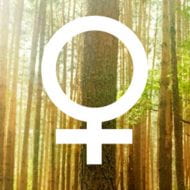Hello World,
My name is Mirko Lopes, I am a senior at UMass Dartmouth and a Liberal Arts major with a concentration in Sociology and Philosophy. I am a local to the area, I’m from New Bedford, MA. I aspire to be a writer/actor and currently train at MCASB (it’s an actor’s studio in Boston), I am pursuing a degree in Liberal Arts because I believe that in order for you to create any art you must be informed on the world, societies, and humanities. As a vegan, I am keenly aware of the effects we have on our environment and how we as humans impact our planets through our consumption of meat, practices of capitalism, and use of plastic products. In my free time, I love to bake and since I’m vegan it’s always fun trying out new alternative recipes, even though most of the time they fail miserably. I’m excited to get going in this class to gain new knowledge of Ecofeminism. Hope everyone has a great and ease-filled semester!
– Mirko Lopes
The Blog that caught my eye, mainly because it is a publication I personally follow is Makers. Makers encompass all things concerning the women’s movement, through shared stories about exceptional everyday people, profiles on celebrity activist, and the historical figure who defined what it is to be a Maker. The website and publication use the outlets of blogging and social media to spread awareness on social issues, educate us on the power of women, and inspire new generations to fight for feminism. Blogs on history defining figures like now 100-year-old NASA mathematician Katherine Johnson, the philanthropy of national treasure: Oprah Winfrey, and even feminist allies like John Legend, are what separates Makers and makes it fun to learn and read about feminism and the power of women.
An environmental issue that I find important is the endangerment of bees, the pollinators of life. Bees, as well as other pollinators such as, the hawk moth and humming birds, are at risk of endangerment and extinction. The extinction of pollinators would lead to a loss of 1/3 of all food supplies and likely make many of the foods you love go extinct in the process, such as avocados, almonds, watermelon, and obviously HONEY! I’ve personally noticed the lack of pollinators like bees and butterflies in my own area. I live in an urban area but my backyard is large and filled flowers. As a child, I remember being afraid to even leave my house because I am allergic to bee stings and was once stung, let’s just say it wasn’t pretty and I still have PTSD from it. In more recent years (about the past 5 years) I haven’t been able to spot more than maybe 4 bees all summer, this is an incredible decrease from what once seemed like a hot spot for busy bees. However, I am not the only one who is noticing the changes, since they are worldwide. The annual loss of bees has remained at high percentages for a lot of time now. As seen in this USDA chart, the loss of Honey Bees has remained over 25% with some recent reports as high as 50%.

On the local level, many ways we can help these pollinators is by eating foods that aren’t raised with insect-killing pesticides, plant wildflowers, and eat sustainable foods that don’t directly harm pollinators, such as not eating foods that directly contribute to climate change like animal meat. Everyone needs to see the importance of sustainable living that doesn’t cause the mass extinction of honey bees as we’ve been seeing. The principles of Ecofeminism are our best bet when it comes to reversing the negative effects of our capitalistic, carnivoristic, waste-based culture that has found footing all over the world.
